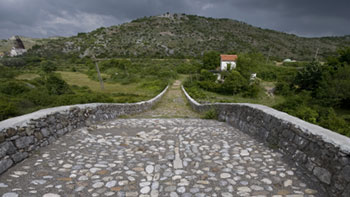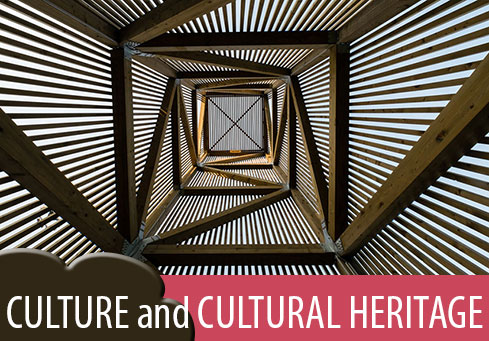Faro Convention Research

This requires an extended network of civil society involvement and academic study to be able to assess the progress and impact of the Faro Convention Action Plan, as well as making sound recommendations. In this capacity, the Secretariat welcomes partnerships with civil society organisations and academia in order to study various aspects of the Faro Convention Action Plan, produce research papers, articles and documentaries, and provoke further discussion in the field of heritage.
Partners
Development of partnerships with academia, research organisations and civil society organisations to carry out studies on Faro-related topics;
St Etienne University – from COMUS to Faro, working with five countries and nine COMUS pilot towns, assessing the opportunities for community involvement and heritage communities in developing urban planning strategies.
Publications
Relevant academic research papers, articles, documentaries and reports will be shared with a wider audience.
Faro Convention topical series
The Faro Convention Action Plan, in consultation with the Council of Europe’s EUR-OPA Major Hazards Agreement, carried out a research study in Fontecchio, Italy in October 2017.
Fontecchio is a small medieval village, in the province of L’Aquila, located in a regional park (Monte Sirente), but also in a zone with regular seismic activity (earthquakes[1]).
A discussion centring on community preparedness and post-disaster revitalisation was held amongst academics and civil society organisations, with a focus on the active role of communities and heritage in the revitalisation process. Participants have kindly offered their opinions in short articles here, to generate further discussion and to encourage action in the heritage field.
The articles bring together a selection of examples, case studies and viewpoints on specific situations across a range of European countries. Heritage and community revitalisation is approached with specific attention to heritage and social change, heritage as an ecosystem of development, and making heritage accessible. From these different angles, we see what a people-centred approach means in practice; what we need to know before we act; and what challenges exist that we may or may not be prepared for.
- Heritage as a Tool for Community-Building - Valeria Pica, PhD candidate, Malta University and ICOM-CECA, Italy
- Heritage as a System and Process that Belongs to Local Communities - Matthias Ripp, PhD candidate, Brandenburg University of Technology Cottbus-Senftenberg, Germany
- The Challenges for Museums in Abandoned Lands - Luís Raposo, archaeologist, President of ICOM-Europe, Portugal
- Local knowledge as research tool to save Cultural Heritage - Andrea Sieber, researcher, Alps-Adria-University Klagenfurt, Austria
- Making Heritage Accessible: Museums, Communities and Participation - Margherita Sani, NEMO Network of European Museum Organisations, Istituto Beni Culturali Regione Emilia Romagna, Italy
- People – Places – Stories: a workable threepart model for post-disaster heritage revitalisation? - Marie Gaillard, freelance consultant and researcher, France
- Public Space and the Tasks of Cultural Heritage Today: Between Remembrance and Regeneration - Gerard Delanty, University of Sussex, Brighton, UK
- Learning from the past, to create a better future: Avoiding discrimination against refugee and migrant populations by creating a sense of belonging through Intangible Cultural Heritage - A case study from Greece - Mr. Panas Karampampas, post-doctoral researcher, EHESS, France
- Catering for migrants in museums: what societal challenges in Europe? - Ms Manon Collin, PhD candidate Avignon University, France
- An example of a heritage communities’ network: the Jaume I University Patrimoni project (Castellón) - Mr. Ángel Portolés-Górriz, PhD candidate University Extension Programme Patrimoni project coordinator, Jaume I University, Spain
Impact assessment
Periodic assessments will be conducted of the outcomes of the Faro Convention Action Plan and projects. Recommendations will be made for further improvement.
[1] 6 April 2009 - L’Aquila and its surrounding villages were devastated by an earthquake: 309 people died, more than 10 000 buildings were damaged, 66 000 residents were made homeless. In Fontecchio, 40% of the buildings were damaged and needed urgent restoration.
Faro Convention Research Study
In consultation with the CoE EUR-OPA Major Hazards Agreement, a research study is planned in Fontecchio, Italy in October 2017, with the focus on Faro Convention approach, community preparedness and post disaster revitalization. In this capacity, a group of academics and civil society...
- The Faro Convention at work in Europe: selected examples
- The Faro Convention’s role in a changing society: building on a decade of advancement
- People, places, stories - Faro Convention inspired experiances
- Brochure - Action for a changing society
- Polish civil society and the aims of the Faro Convention
- Heritage and Beyond
- European Manifesto on Multiple Cultural Affiliation
- Dividing lines, connecting lines: Europe's cross border heritage



